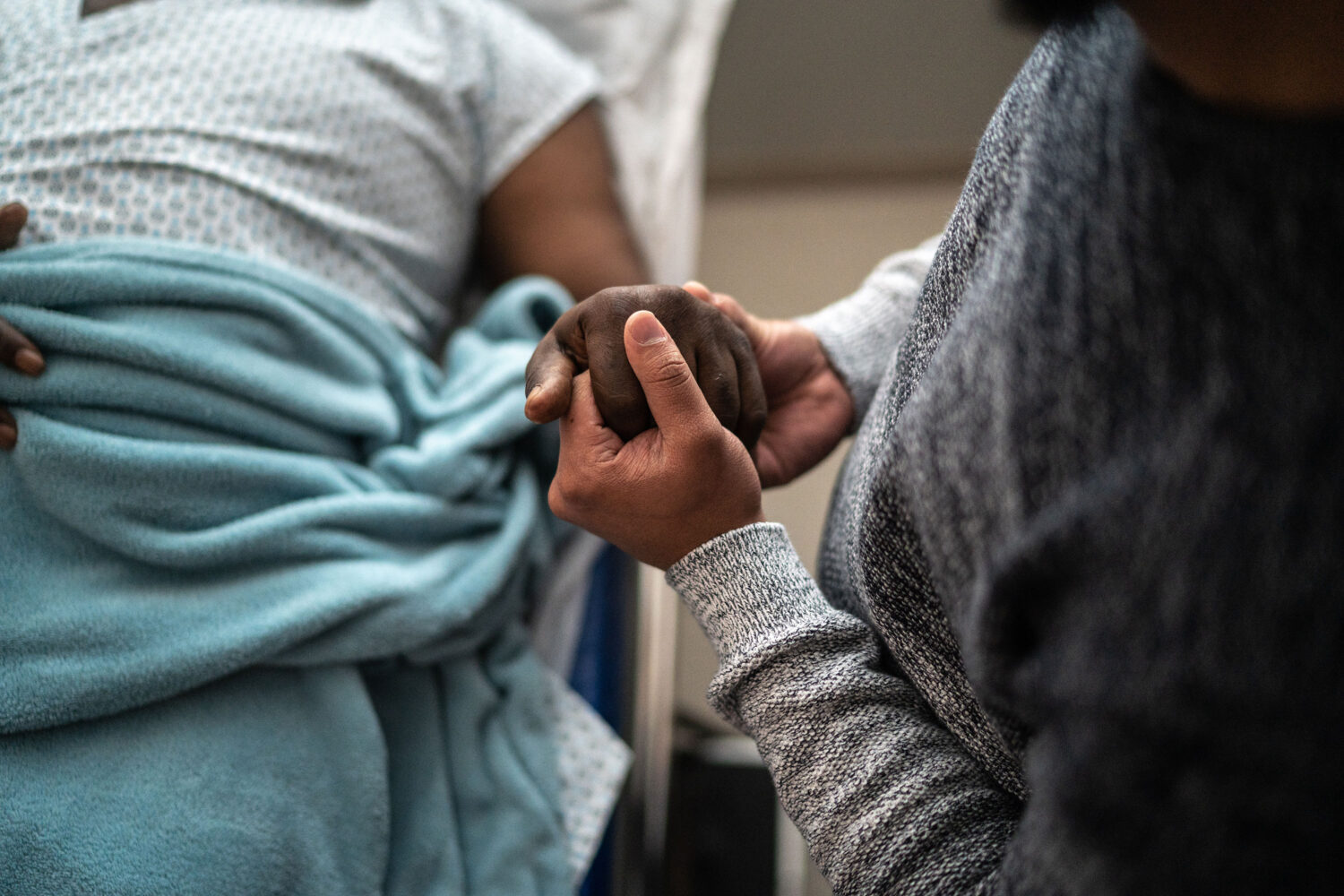
(CNN) — Among older patients, Black men may have a higher chance of dying within 30 days following surgery than their peers, according to a new study.
The study, published Wednesday in the medical journal BMJ, suggests that this inequity could be driven by outcomes following elective surgery, for which death was 50% higher for Black men than for White men — information that can be helpful for physicians as they plan procedures for patients.
Previously, separate research published in 2020 came to similar findings among children, showing that, within 30 days from their surgeries, Black children were more likely to die than White children.
“While a fair bit is known about such inequities, we find in our analyses that it’s specifically Black men who are dying more, and they are dying more after elective surgeries, not urgent and emergent surgeries,” study lead Dr. Dan Ly, assistant professor of medicine in the division of general internal medicine and health services research at the David Geffen School of Medicine at the University of California, Los Angeles, said in a news release.
“Our findings point to possibilities such as poorer pre-optimization of co-morbidities prior to surgery, delays of care due to structural racism and physician bias, and worse stress and its associated physical burden on Black men in the United States,” Ly said in the news release.
Researchers at the University of California, Los Angeles analyzed Medicare data on more than 1.8 million beneficiaries, ages 65 to 99, who underwent one of eight common surgical procedures. The data came from 2016 to 2018, and the researchers examined how many patients died during their hospital stay or within 30 days after surgery.
The researchers found that dying after surgery overall was higher in Black men compared with White men, White women, and Black women. Dying after surgery was 50% higher for Black men than for White men after elective surgeries, the data suggest, but for non-elective surgeries, there was no difference between Black and White men, although mortality was lower for women of both races.
Among the Black men in the study, about 3% of them died following surgery overall compared with 2.7% of White men, 2.4% of White women and 2.2% of Black women. These differences were relatively larger for elective surgeries, and appeared within a week after surgery and persisted for up to 60 days after surgery, the researchers found. In a separate analysis, the researchers found that Hispanic men and Hispanic women showed a lower overall mortality than Black men.
“Our study has shed light on the fact that Black men experience a higher death rate after elective surgery than other subgroups of race and sex. Further research is needed to understand better the factors contributing to this observation, and to inform efforts to develop interventions that could effectively eliminate such disparity,” Dr. Yusuke Tsugawa, the senior author of the study and associate professor of medicine at UCLA David Geffen School of Medicine, said in an email.
The study did not explore what could be driving the disparity but Tsugawa said that “several factors” could potentially play a role.
“The structural racism may at least partially explain our findings. For example, Black patients living in neighborhoods with predominantly Black residents tend to live close to hospitals that lack resources to provide high quality healthcare,” Tsugawa said in the email. “It is possible that Black men in particular face especially high cumulative amounts of stress and allostatic load, which refers to the cumulative burden of chronic stress and life events, potentially leading to a higher death rate after surgery among this population.”
‘It’s concerning when you see such a large disparity’
The new study “validates” that racial inequities exist in health care, said Dr. Georges Benjamin, executive director of the American Public Health Association, who was not involved in the study.
“Obviously it’s concerning when you see such a large disparity,” Benjamin said, referring to the differences in how many patients died after surgery in the study findings.
“Here’s another example that these disparities are real, and I think it helps inform people — physicians, health systems, providers of care — that the disparity is already there,” he said. “So, when they’re looking at providing surgical care to their patients, they should be informed that, statistically, some of their patients may not do well 30 days out after surgery, and so they need to put extra care in both providing care and understanding the health status of those patients when they go to surgery.”
The new study findings also raise many questions about health systems and what happens when a patient is discharged home after surgery and their ability to safely recover from a procedure, said Dr. Utibe Essien, assistant professor of medicine at the David Geffen School of Medicine at UCLA, who was not involved in the study.
“As a generalist, I’m really thinking about that part as well and how we can engage with our surgical colleagues to make sure our patients who are from underrepresented groups are leading healthy lives after they’ve gone under the knife so to speak,” Essien said, adding that more research could help determine which types of elective surgeries may have seen more significant disparities than other types — and what would be needed to reduce the disparities.
“Would we find something different with more rare, complicated surgeries? It’s possible and that goes back to the type of hospitals where patients are getting their care,” Essien said.
“How close is a hospital really connected to an academic medical center that knows the latest and greatest surgical procedures? Do they have the technology to be able to do some really innovative and safe work?” he said. “Looking into ways at the hospital level that we can address these disparities, I think, is going to be important.”
The-CNN-Wire
™ & © 2023 Cable News Network, Inc., a Warner Bros. Discovery Company. All rights reserved.



